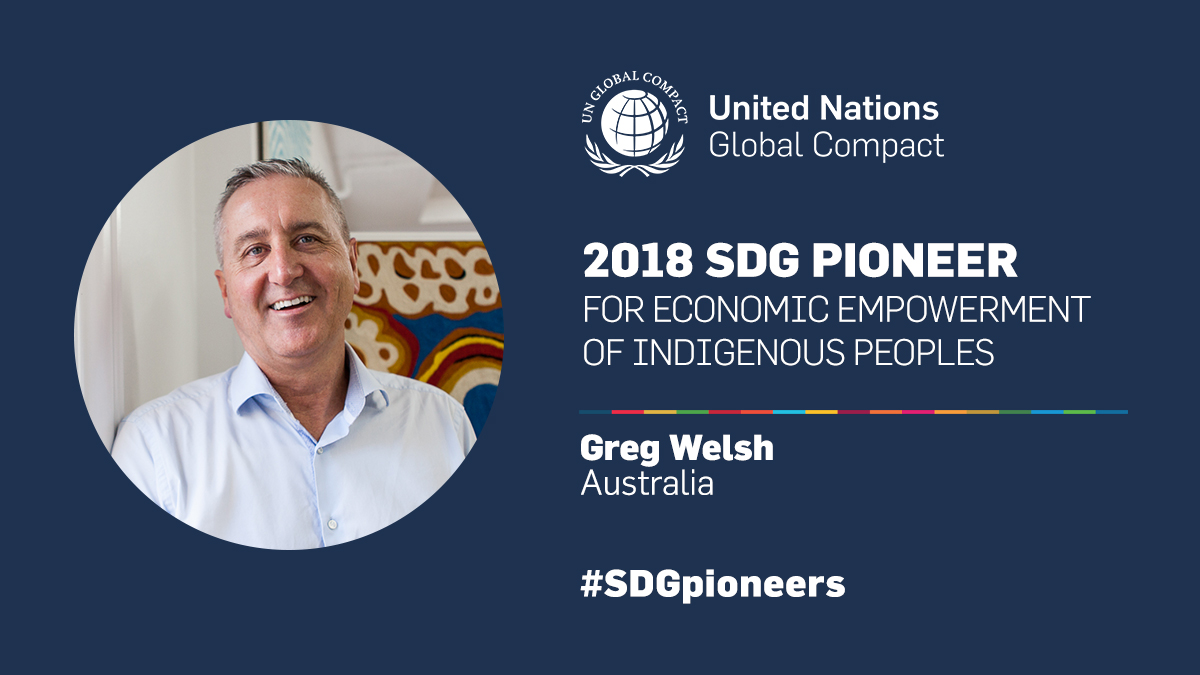An SDG Pioneer for Economic Empowerment of Indigenous Peoples
Greg Welsh has demonstrated how a small furniture company in Australia can improve the lives of Indigenous peoples while advancing labour, environmental and social justice standards far beyond this island continent’s borders.
As Director of Winya Indigenous Furniture, Greg is not only successfully running a company that makes workstations, storage lockers and other office furniture.
He is directing an enterprise with business targets that incorporate 10 Sustainable Development Goals (SDGs): Goal 1 (No poverty); Goal 5 (Gender Equality); Goal 8 (Decent Work and Economic Growth); Goal 9 (Industry, Innovation and Infrastructure); Goal 10 (Reduced Inequalities); Goal 11 (Sustainable Cities and Communities); Goal 12 (Responsible Consumption and Production); Goal 15 (Life on Land), Goal 16 (Peace, Justice and Strong Institutions); and Goal 17 (Partnerships for the Goals).
The majority of Winya’s staff are Indigenous women while Debbie Barwick, a Kamilaroi woman from Bora Crossing New South Wales, serves as chairwoman and is a majority shareholder. Debbie has spent the past 15 years working to support the establishment and growth of viable Aboriginal businesses. She is a key funder and manages the company’s Government and corporate relations, along with other responsibilities.
Winya helps curb poverty and the chronic social and economic disadvantages faced by Indigenous peoples in remote communities by employing workers in these faraway locales to make its furniture components. Winya also works with prison systems to train Indigenous inmates in the furniture manufacturing trades. This collaboration aims to curb the cycle of poverty, unemployment and incarceration.
Winya, which means “sit now” in the Wiradjuri dialect, has worked with many organizations to bring Indigenous furniture into their offices so staff are reminded each day as the sit on it, or walk past the furniture, of their organization’s reconciliation goals.
To help protect the environment, Winya this year released e-Board, a new product and programme that recycles office furniture. Instead of using wood coated with melamine that is sent into landfills, e-board is made of 92% recycled timber from old desks and off-cuts from the Australian furniture industry. The e-board can then be recycled at the end of its life.
A senior manager at several companies before joining Winya as director in 2015, Greg makes sure the company’s message of labour, environmental and social justice for Indigenous people is conveyed to all employees, customers and its international suppliers. In addition to promoting its message through the media, the company gives presentations on sustainability and the empowerment of Indigenous peoples to major builders in Australia. The company has offices in Canberra, Darwin, Melbourne and Sydney.

The company has been participating in the UN Global Compact since 2017 and the Ten Principles of the UN Global Compact have given it the foundation for carrying out its business goals. Based in an island nation that imports many of its supplies, Winya works to ensure its international suppliers adhere to its labour, environmental and social justice principles. The company zeros in on areas where it can make a difference and last year secured two sustainability awards for products made from timber. Instead of being burned in mine-site clearing operations, workers from remote Indigenous communities harvested the timber and processed it into furniture.
Greg is a 2007 graduate of the Australian Graduate School of Management and was a board member of Global Compact Network Australia for many years. He has actively participated in many of its seminars, including federal police anti-corruption seminars, to expand the network’s membership. Greg has given numerous talks about international supply chain issues, such as employment, child labour and corruption, that impact Australian companies.
